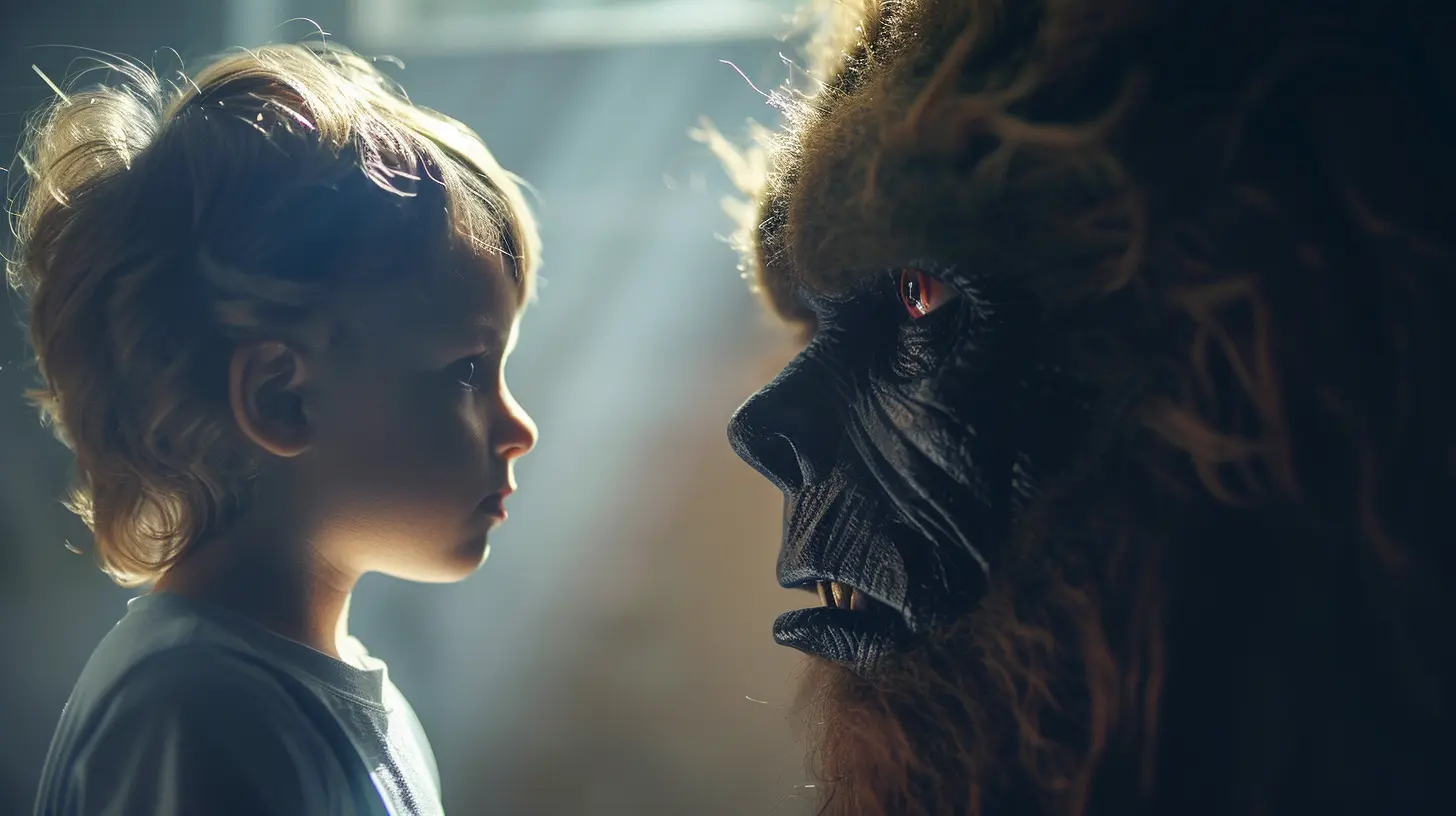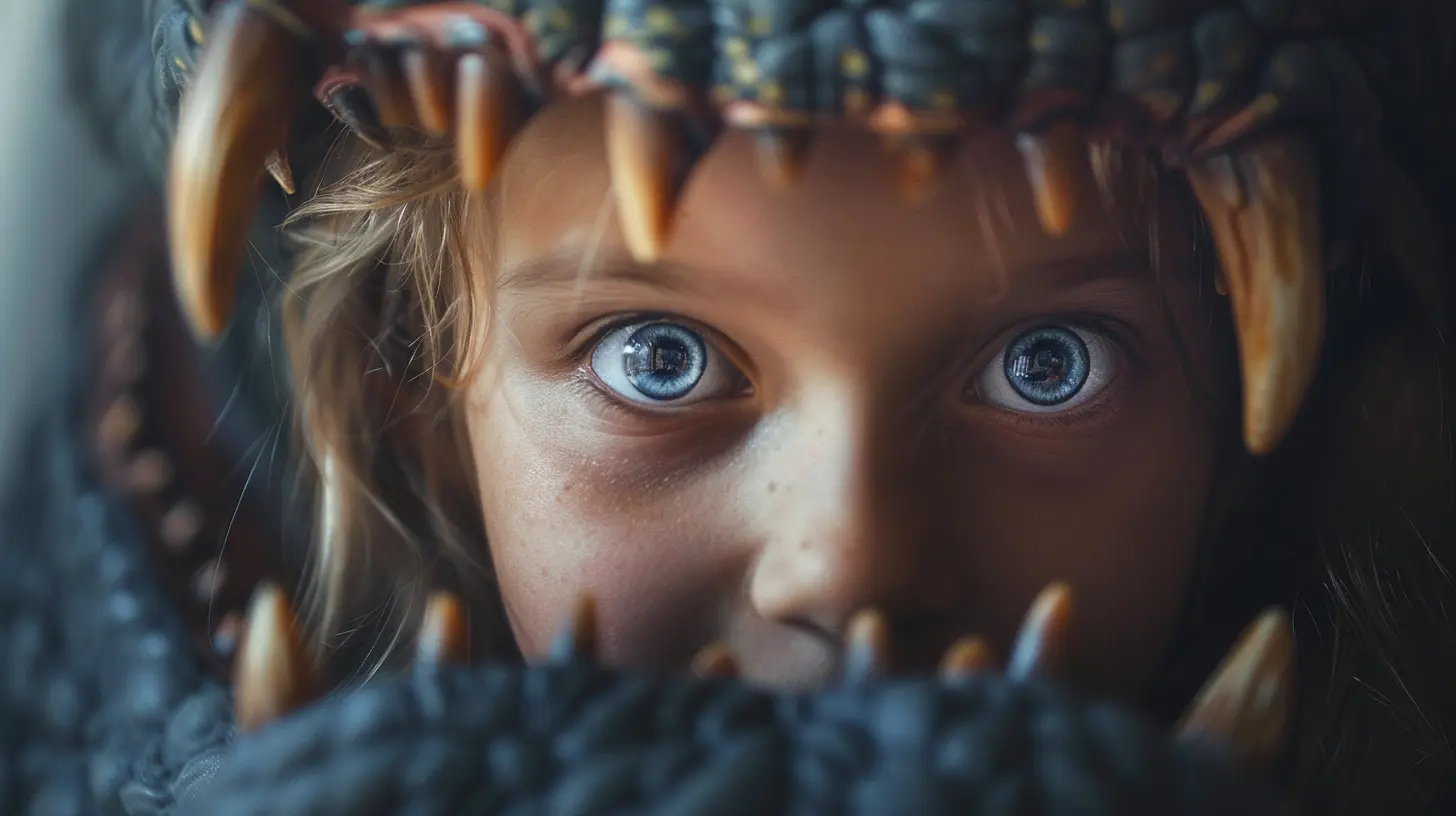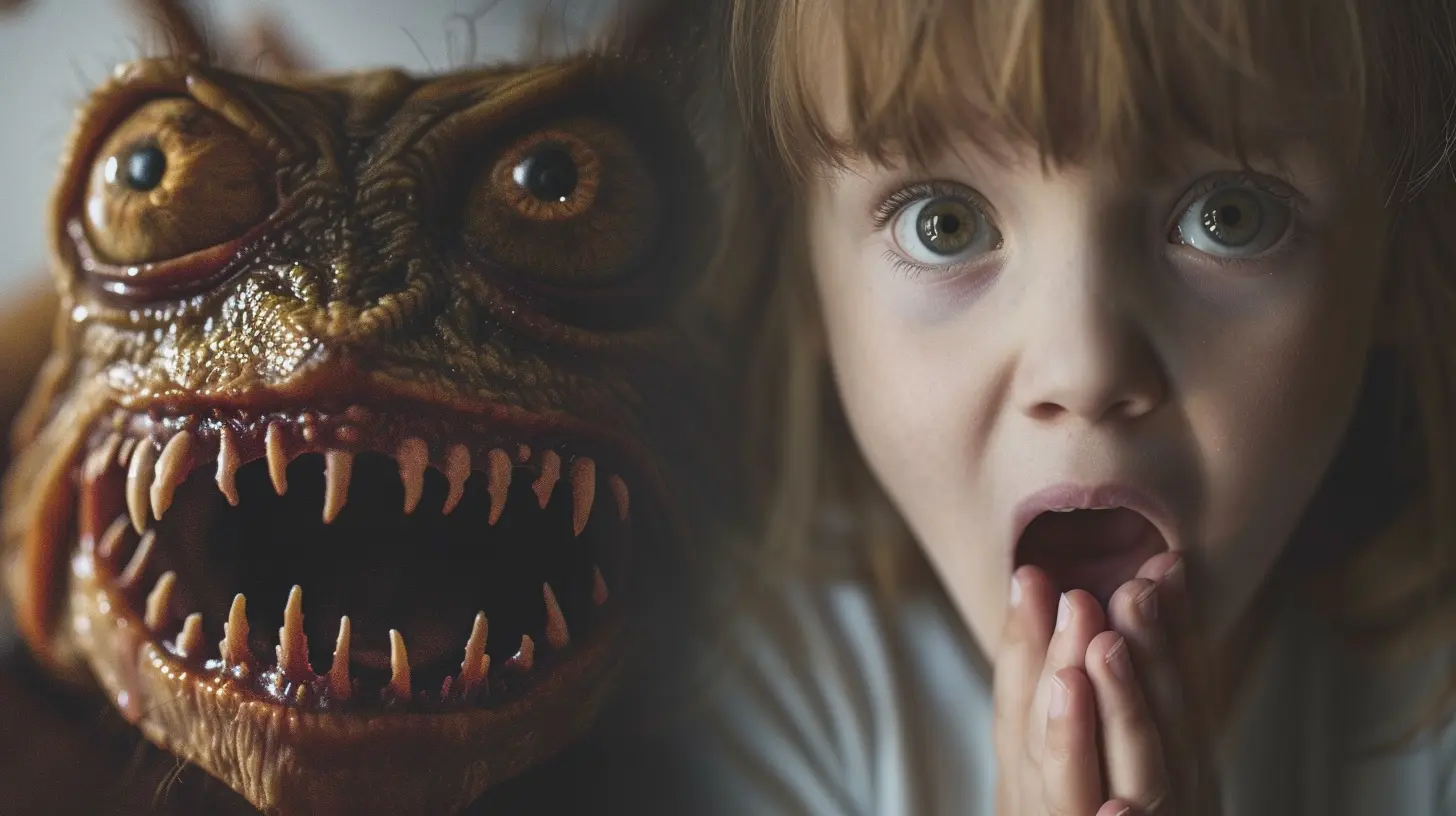Strategies for Managing Your Kid’s Fear of Monsters
7 November 2025
Let’s talk about monsters. No, not the ones in movies or your teenage years—but the imaginary ones hiding under your kid’s bed or lurking in their closet. If you're here, chances are your child has started showing signs of monster fears, and you’re wondering how to ease their little mind.
Believe it or not, fear of monsters is super common among young children. It usually pops up between the ages of 2 and 7 when their imagination kicks into high gear, but their sense of reality is still catching up. The good news? With a little patience, creativity, and strategy, you can help your child feel safe, confident, and monster-free.
In this post, we’re diving deep into why kids fear monsters, how to respond in the moment, long-term strategies that actually work, and how to create a bedtime routine that leaves no room for boogeymen.
Why Are Kids Afraid of Monsters in the First Place?
Let’s be real—kids see the world differently than we do. Their imaginations are wild and wonderful but can sometimes turn against them.1. Developmental Stages and Imagination
Children in preschool and early elementary years are developing their cognitive skills. Their ability to tell the difference between what's real and what's imaginary is still under construction. It's like giving a toddler a magic wand: they'll believe they can summon dragons or, unfortunately, monsters.2. Influence from Media
Even with the most kid-friendly content, there’s always that “silly” monster character that might unintentionally spark fear. Not to mention older siblings watching not-so-G-rated stuff in the background. A shadowy figure in a cartoon can quickly morph into something terrifying in a child’s dreams.3. Fear of the Unknown
Let’s face it—darkness is scary, even for some adults. For kids, the dark is a blank canvas. Their minds happily fill it with the most bizarre, spooky images. And since they don’t fully grasp why the closet can’t be a portal to Monsterland, anxiety takes hold.
The Wrong Way to Handle Monster Fears (and Why It Matters)
Before jumping into what to do, let's talk about what not to do.1. Dismissing Their Feelings
Saying things like "There’s no such thing as monsters" or "Don't be silly" might sound logical to you, but it invalidates your child’s fear. Remember, they’re not being dramatic—they’re genuinely scared.2. Feeding the Fear
On the flip side, treating the monster like it’s actually real (“Let's leave snacks for the monster to keep him happy”) can backfire. You’re basically confirming what they already believe.Balance is key here—acknowledge the fear without giving it too much fuel.
Practical Strategies for Managing Your Kid’s Fear of Monsters
So, how do you help your child feel safe while also guiding them gently towards understanding that monsters aren’t real? Here are some real, working strategies.1. Validate Their Feelings
Start with empathy. Let them know it’s okay to feel scared.Say something like, “I understand that the idea of monsters is scary. Lots of kids feel that way sometimes.” This makes your child feel heard and supported, which goes a long way.
2. Use Their Imagination to Your Advantage
Imagination caused the problem, but guess what? It can help solve it too.How about inventing a "Monster Spray"? Fill a bottle with water and a few drops of lavender oil, label it "Monster Zapper", and let them spray around the room before bed.
Want to crank it up a notch? Create a "Monster-Free Certificate" signed by an imaginary "Monster Inspector" confirming their room is certified monster-free.
They’ll buy into it because they helped create it.
3. Establish a Trusting Bedtime Routine
Routine equals safety in a child’s world. When their day ends predictably and peacefully, they’re much less likely to fear the unknown.Include things like:
- A warm bath
- A familiar bedtime story
- Gentle music or a white noise machine
- A goodnight kiss ritual (maybe even a silly monster-stomping dance)
Bedtime turns into something comforting, not scary.
4. Control the Environment
Make their bedroom a safe haven, not a haunted house.- Use a night light: But soft, not blinding. Just enough to chase away the “shadows.”
- Keep doors open: Sometimes just hearing your voice in the hallway is reassuring.
- Declutter: Chaos in the room can spark anxiety. Plus, fewer places for “monsters” to hide.
5. Help Them Master the Fear, Not Avoid It
Give them tools to deal with the fear, rather than avoiding it completely.- Ask them to draw the monster. Then change it—give it bunny ears or a ballerina tutu.
- Encourage storytelling. Let them write a story where they defeat the monster and become the hero.
- Use role-playing. Turn fear into a game by pretending to be monster-busting superheroes.
When they feel in control, the fear starts shrinking.
Addressing Recurring Monster Dreams and Nightmares
If monster dreams are the real culprit, they’re probably waking up upset in the middle of the night. You’ll want to tackle both the sleep disruption and the root of the fear.1. Talk About Dreams—But Not Right Before Bed
Bring up these dreams during the day when the scariness has passed. Ask them to describe it, then maybe even reimagine a different, silly ending.Example: “What if the monster just wanted a bedtime snack of spaghetti instead of chasing you?”
This helps them separate the dream world from their real life.
2. Limit Screen Time Late in the Day
Even seemingly innocent shows can plant the wrong seeds. Aim for calm, positive content before dinner and cut off electronics at least an hour before bed.What If the Fear Doesn’t Go Away?
Sometimes, fears stick around longer than we expect, refusing to be tamed by lavender spray or superhero roleplay. That’s okay—but it may need a bit more attention.When to Consider Professional Help
If your child’s monster fear is:- Disrupting their sleep constantly
- Interfering with daily activities (like refusing to go into a room alone)
- Causing physical symptoms like stomachaches or panic attacks
…it might be time to consult a pediatric psychologist. Professionals can offer cognitive behavioral tools that work wonders in helping kids overcome fears.
Teaching Long-Term Coping Skills
Helping your child with their fear of monsters is also a golden opportunity to teach them how to deal with anxiety in general.Show Them How to Self-Soothe
Teach them easy breathing exercises: breathe in like you’re smelling a flower, breathe out like you’re blowing out a candle. Simple, effective, and even fun.Offer Empowerment Over Reassurance
Saying “You’re safe” is okay, but encouraging them to say it themselves is even better.Try this: “What can you say to yourself when you feel scared?” Help them come up with a mantra like “I am strong and safe in my room.”
Turning the Corner: Celebrating Progress
As your child begins to sleep through the night, ditch the monster spray, or laugh about their past fears, make a big deal out of it!- Create a “Monster-Free” calendar and add stickers for fearless nights.
- Cook up a “Bravery Pancake Breakfast” to celebrate.
- Share your own childhood fears and how you overcame them.
Celebrating these little victories will reinforce your child’s confidence and ability to deal with big feelings in the future.
Final Thoughts: You’ve Got This
Your child’s fear of monsters might feel like just one more bedtime battle—but it’s actually a chance to build trust, improve emotional intelligence, and strengthen your bond with them.By responding with patience, creativity, and empathy, you’re not just solving a short-term problem—you’re giving your kid lifelong tools to deal with fear and anxiety. And let’s be real, don’t we all wish someone had done the same for us with our childhood fears?
So grab the Monster Spray, put on your superhero cape, and show your little one there’s nothing they can’t conquer.
all images in this post were generated using AI tools
Category:
Dealing With FearsAuthor:

Steven McLain
Discussion
rate this article
1 comments
Kieran McTier
This article offers insightful, practical strategies for addressing children's fears, emphasizing empathy and open communication. Empowering kids to confront their fears fosters resilience and strengthens parent-child bonds.
November 7, 2025 at 4:28 PM

Steven McLain
Thank you for your thoughtful comment! I'm glad you found the strategies helpful in fostering resilience and strengthening bonds. Empathy and communication are key!


